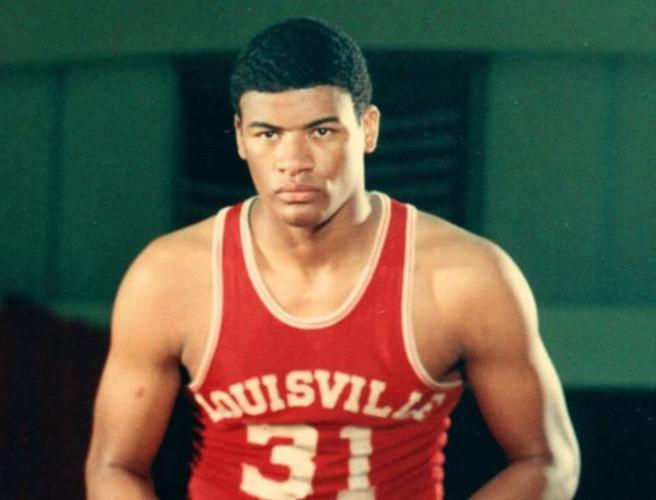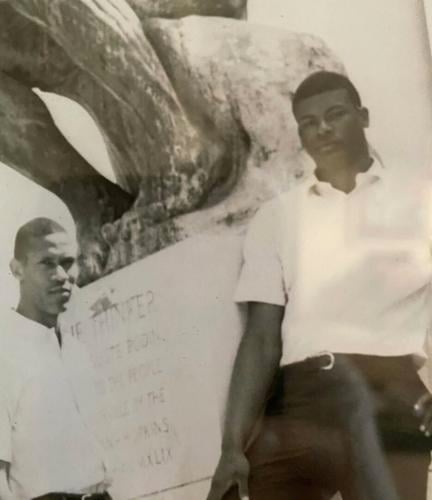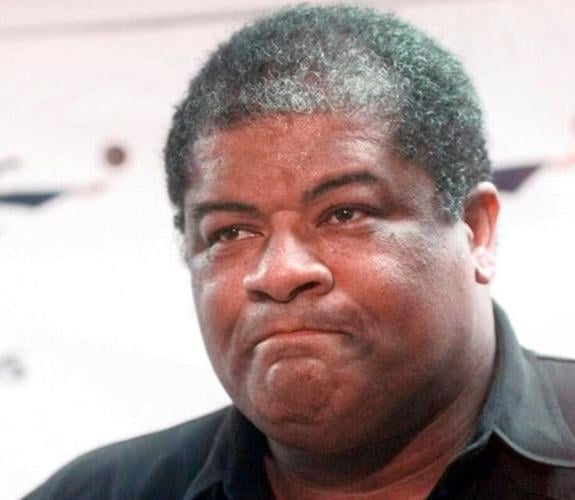LOUISVILLE, Ky. (WDRB) -- There were 30 people and events honored with the Louisville Hometown Hero designation.
Muhammad Ali, Paul Hornung, Pee Wee Reese, Phil Simms, Darrell Griffith, Mary T. Meagher: They were all deserving of recognition before the program ended three years ago.
So was Wes Unseld.
There is a Johnny Unitas statue at Cardinal Stadium, a Pee Wee Reese statue at Louisville Slugger Field, a Pat Day statue at Churchill Downs and statues honoring Lenny Lyles and Hornung in Louisville.
But no statue of Unseld, who was 74 when he died Tuesday in Maryland.
No Hometown Hero designation for the guy that even Hall of Fame basketball writer Bob Ryan identified as the best player this town produced?
No statue for a guy who was admired across the NBA for the strength of his character, principles and intellect?
That is puzzling. That is also wrong.
“I heard that they talked to him about a statue but that Wes was against it,” said Butch Beard, one of Unseld’s best friends as well as his teammate at the University of Louisville. “They still should have done it, because without Wes, there would be no University of Louisville basketball.”
Beard was not saying the school would not have a program. He was saying the school would not have grown from a regional power in the 1960s to the national brand that it became in the '70s.
Unseld and Beard were not the first African American players at U of L. But they were clearly the most significant, especially Unseld.
“The basketball (at Louisville) was good in the 50s. I give (Charlie) Tyra, (Phil) Rollins, (John) Reuther, (Fred) Sawyer their just due,"Beard said. “But Wes, nationally, put Louisville on the map. And it’s been that way ever since he walked on that campus ... the university could have done a better job of promoting the greatness of Wes, and they never did.”
Listen to Beard. He understands the history of Cardinal basketball.
Unseld could have played for any program in America. Former Louisville Mayor Jerry Abramson was a classmate of Unseld’s at Seneca High School. He told me that Unseld had grades that inspired Ivy League schools to pursue him.
Adolph Rupp wanted Unseld to become the first African American player at the University of Kentucky. Unseld could have teamed with Pat Riley, Louie Dampier and Larry Conley on the all-white 1966 UK team that lost the national title to the all-black Texas Western team in a game that changed college basketball.
Unseld chose Louisville. Some moments define history. Unseld and Beard led to Wesley Cox, Phil Bond, Rick Wilson Darrell Griffith, Bobby Turner and Jerry Eaves, which led to Herbert Crook which led to ... you know the story.
“Whether (U of L) knew it or not, there’s a whole bunch of black guys that would have never come to the University of Louisville if Wes Unseld had not stepped foot on that bad boy,” Beard said.
That includes Beard, who declined an offer from Rupp at UK as well as another offer from John Wooden to play with Lew Alcindor (now Kareem Abdul-Jabbar) and win three national championships at UCLA.
Beard said that he and Unseld roomed together for three years. Freshmen were not supposed to stay in Miller Hall with upperclassmen, but an exception was made so Beard could live with Unseld.
They became friends two years earlier in high school, when their teams — Seneca and Unseld vs. Beard and Breckinridge County — met in the championship game of the 1964 Kentucky Sweet Sixteen at Freedom Hall.
Beard said all 16 teams were lodged in the same hotel. Seneca and Breckinridge County stayed on the same floor. After several days of encounters in the hallways and elevators, Unseld approached the Breckinridge County players with a proposal.
“It was Wes who said, ‘Hey, why don’t you all come over and play some dominoes?’” Beard said.
Did you play?
“Yeah,” Beard said. “Yeah. Of course.”
That created a bond that lasted more than 50 years. There were few people Beard admired more than Unseld and not simply because of what his friend achieved as a player. Unseld became a member of the Naismith Basketball Hall of Fame who was also named one of the NBA’s 50 Greatest Players in 1996.
The men also coached against each other in the NBA — Beard at New Jersey, Unseld at Washington, where Unseld later served as a general manager and executive. In Baltimore, Unseld remains revered for the work he and his wife, Connie, did establishing Unselds’ School, a private K-8 facility where Wes was frequently spotted greeting students.
Hall of Fame player and Hall of Fame person. Sounds like the resume of a Hometown Hero.
“They have a statue of Johnny Unitas out there, right?” Beard said.
Yes.
“Did Johnny Unitas do anything except play football at U of L?” Beard asked. “Did he win two or three bowls or anything?
“Nothing against Johnny Unitas, because he was a great player, especially as a pro with the Baltimore Colts, OK. They put one up of him.
“Maybe Wes didn’t want to do it because that’s who Wes was. Regardless of the fact that he didn’t want it done, they should have pushed for it.
“You don’t back away from that.”
No, you don’t — a statue and a Hometown Hero designation. Wes Unseld earned both.
Related Stories:
- BOZICH | Louisville basketball legend Wes Unseld dies at 74
- CRAWFORD | For Louisville, landing Wes Unseld was a key to the program's future
- BOZICH | Friends remember Wes Unseld as great player, greater man
Copyright 2020 WDRB Media. All Rights Reserved.







































































